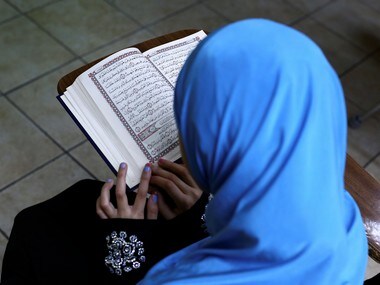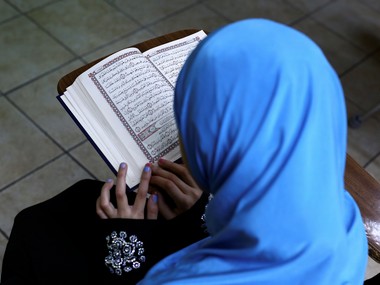The urgency with which the All India Muslim Personal Law Board (AIMPLB) plans to establish Sharia courts across the country should be seen the context of emerging challenges to the dominance of conservative elements over the Muslim society. Not long back, the AIMPLB was seen opposing the petition against the practice of triple talaq in the Supreme Court through all means at its disposal. One of its most farcical claims was that it had framed a nikahnama, which was enough to the redress the prevailing ills afflicting the Muslim women in the name of triple talaq. As now it has realized that the Supreme Court is more interested in upholding the fundamental rights guaranteed under the Constitution than leaving the question of Muslim women’s rights at the mercy of the AIMPLB, the conservative elements feel the dire need to reinforce their iron grip over Muslim society through Sharia courts. The Supreme Court verdict on triple talaq may also have an effect on the fate of petitions against polygamy and nikah halala, as the argument in favour of primacy of personal laws over fundamental rights stands entirely challenged. The problem of the AIMPLB is not limited to questioning these archaic provisions, but the fact that such verdicts may further embolden the sections seeking to reform the Muslim society. The Sharia courts are supposed to defend the hegemony of conservative elements over Muslim society by dissuading ‘faithful’ Muslims from approaching regular courts while seeking relief in matters falling within the domain of personal laws. [caption id=“attachment_4793871” align=“alignleft” width=“380”]  Representational image. Reuters[/caption] While the AIMPLB is working to its plan, there are attempts to rationalise such moves. To assume Sharia courts merely as counselling and arbitration centres would be a huge mistake. Although it is claimed that the opinions of these courts operating under the names of Darul Qaza/ Nizam-i-Qazas are advisory in nature and not enforceable, the social coercion in the name of religion to implement these opinions cannot be denied. Claiming there is no clash between judicial courts and Darul Qaza, the AIMPLB president Maulana Syed Rabey Hasni Nadvi reportedly asserted in 2014 that Islamic courts’ decisions were binding on Muslims and it is a ‘sin’ to challenge them in other courts. In the Vishwa Lochan Madan case, while the Dar-ul-Uloom, Deoband admitted that it had issued a fatwa in that particular case, it asserted that ‘God fearing Muslims, being answerable to the Almighty, obey the fatwas, others may defy them.’ There is little doubt that matters brought in Sharia courts, when decided upon by qazis/naib qazis, carry some kind of religious sanctions which are very difficult for a person belonging to the weaker and poorer section of society to defy. Although their decisions are not enforceable through the state machinery, there are valid apprehensions that the weaker sections of society may be coerced to accept their decisions through extra-legal means. In other words, such decisions are enforceable through religious sanctions, socially stigmatising individuals. While disposing a writ petition filed by Vishwa Lochan Madan, the Supreme Court has observed, “The object of establishment of such a court may be laudable but we have no doubt in our mind that it has no legal status. It is bereft of any legal pedigree and has no sanction in laws of the land. They are not part of the corpus juris of the State.” Although the apex court has stopped short of declaring these courts illegal, while citing Dar-ul-Uloom Deoband’s response, it has added a number of cautions, “… as the fatwa gets strength from religion; it causes serious psychological impact on the person intending not to abide by that.” It further says, “Having regard to the fact that a fatwa has the potential of causing immense devastation, we feel impelled to add a word of caution. We would like to advise the Dar-ul-Qaza or for that matter anybody not to give any response or issue a fatwa concerning an individual, unless asked for by the person involved or the person having a direct interest in the matter”. While citing Imrana’s case, the apex court observes that issuing fatwas “at the instance of rank strangers may cause irreparable damage and therefore, would be absolutely uncalled for. It shall be in violation of basic human rights. It cannot be used to punish innocents”. Although the court has refused Sharia courts or fatwas issued by it any legal status saying , “any person trying to enforce that by any method shall be illegal and has to be dealt with in accordance with law”, there is no denying the fact that misuse of such courts in the name of religion can become rampant, once it acquires its hegemonic position in the Muslim society getting reinforced by the conservative elements from within. The attempts to highlight the importance of Sharia courts under the pretext of declining civil justice appears absurd as the qazis/naib qazis adjudicating in these courts are themselves rarely trained in the legal system and modern jurisprudence. The decline, if any, in the civil justice system cannot be compensated by a system which either fails the test of constitutionality or has the least chance to succeed on the parameters of modern jurisprudence. The Sharia courts cannot be compared with arbitration, mediation and conciliation procedures made available under various Acts in India which are administered within a legal framework sanctioned by the law of the land and stand the test of constitutionality while upholding fundamental rights of every individual. Another argument, rationalising Sharia courts for being accessible and inexpensive for the poor, misses the point that they may be their real victims once a matter is adjudicated. The poorer and weaker sections of society rarely have means either economically or socially to defy such courts’ decisions. At the same time, ensuring gender justice in Sharia courts merely by the presence of women qazis would be remain difficult, as long as the juridical framework and jurisprudence remain elusive for women. It would be better for the AIMPLB to realise that it has to operate within a society having increasing numbers of aspiring individuals who are seeking a better life for their future. In such a scenario, it can remain relevant not by increasing the hegemony of conservative elements through mechanisms like Sharia courts, but by changing the overall framework as per the emerging aspirations of Muslim society. (The writer is national in-charge, BJP journals and publication department and executive editor of BJP mouthpiece Kamal Sandesh)
Although decisions of Sharia courts are not enforceable through the State, the poor may be coerced to accept their decisions through extra-legal means.
Advertisement
End of Article


)

)
)
)
)
)
)
)
)



